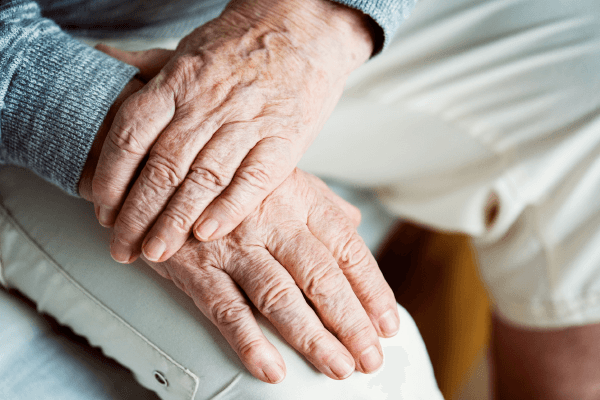The basic function of all medical alert systems is to ensure an easy way to call for help by pushing a button or using voice activation. For seniors who spend most of their time at home, a medical alert system could mean the difference between remaining at home or needing to live in an assisted living facility. Caregivers, family and friends also have the assurance that if their loved one should fall or have an emergency, help is minutes away, and a text message or phone call will alert them to the incident. Many companies offer different types of systems and accessories, but one important feature to consider is a wall-mounted medical alert system.
With a wall-mounted medical alert system, seniors can choose where to place the base unit. They may prefer to have it in their kitchen if they spend the most time there. For some, a wall-mounted base system is easier to get to if it’s on the wall right next to their bed or a favorite chair in the living room. When an emergency happens, reaching for a button on a base system on a counter or table could mean knocking it off and rendering it unreachable for a senior who isn’t wearing a button device. Wall-mounted systems and wall-mounted buttons are good choices for seniors who live with blindness and may have difficulty with cables and chargers needed for wearables.
Wall-mounted systems and additional wall buttons have longer-lasting batteries that sometimes last for months or years. If a senior encounters a medical emergency and the battery on their pendant or wrist button isn’t functioning, they can press the wall-mounted base or button to get help. Medical alert systems with a wall-mounted base unit offer additional wall buttons to place anywhere in the home. They work wirelessly and are useful in bathrooms or showers, hallways, on a wall along the staircase and in the laundry room. Seniors who struggle with dementia may find a button easier to locate when they need help.
This guide has information about why a wall-mounted medical alert system is a good choice and what advantages wall-mounted devices provide.
Medical Alert Systems to Consider for Seniors With Mobility Concerns
Not all medical alert systems include wall buttons, yet these easy-to-reach buttons placed on walls throughout a senior’s home add additional ways to call for help in an emergency. Seniors with mobility concerns or who are blind or visually impaired may appreciate that help is within reach.
GetSafe
With the GetSafe medical alert system, users don’t have to wear a device. The system works with a button, pull cord or voice command. GetSafe does offer a wearable button with fall detection as an add-on. This item operates on the AT&T 4G LTE cellular system and doesn’t require a wireless signal in the home or a landline.
GetSafe includes a compact base unit with two-way audio that’s easily wall-mounted. The speaker volume carries well to other areas of the home, and an ultra-sensitive microphone gives clear feedback so the user can hear the call operator and speak from a distance. Mini consoles with voice activation can provide more coverage in areas the older adult occupant is likely to fall. With the base unit and wall-mounted mini consoles installed, the home occupant can push the button, pull the cord or say, “call 911.” This phrase automatically connects them to a response center operator. GetSafe also offers standard wall buttons without voice activation.
GetSafe doesn’t require a long-term contract. Users pay monthly, and services are available in three tiers, each including the recommended devices based on how many bedrooms are in the home. The basic level or starter package includes the base unit, one voice-activated wall button and one standard wall button. This package works for a home with one bedroom. GetSafe provides a free app for smartphones that lets caregivers, family or friends check in and stay informed of emergencies.
MobileHelp
The MobileHelp medical alert system includes a base unit with two-way communication. When the older adult needs help and pushes the button on the base unit, an emergency response operator speaks directly with them. The speaker is clear and loud, and the microphone provides sensitivity even for someone with a quiet voice or is struggling to talk.
For seniors concerned about reaching for their pendant during an emergency such as a seizure or fall in the shower or worry about a stroke or heart attack leaving them incapacitated, MobileHelp offers a wall-mounted button that includes a pull chord and voice commands. The pull cords are strong and resist breaking, even with a hard pull. MobileHelp’s wall buttons are waterproof and made with high-quality white plastic with a red button. The button has white lettering that says “press for help” and is recessed to prevent accidental calls to the emergency response center.
Seniors who sign up with MobileHelp get a free lockbox to give emergency responders access to their home without having to break down the door. There are no contracts or cancellation fees, and subscribers pay month-to-month and can cancel anytime.
Bay Alarm Medical
The Bay Alarm Medical alert system works with a landline or on AT&T’s 4G LTE cellular system. The base unit communicates with a pendant or through wall buttons that are bright red with the word “help” in large white letters, surrounded by a white plastic case. They’re waterproof and easy to press if a senior falls in the shower, bathtub, kitchen or bedroom. Buttons placed closer to the floor make it easier for an older adult to reach if they fall and can’t get up.
Three packages offer a choice of subscriptions, with the basic protection plan including the base unit and one pendant but no wall buttons. The base unit provides two-way communication with speaker volume audible from most areas in a home and a sensitive microphone to allow clear communication with the response center operator. The preferred package includes two wall buttons, and the premier package comes with four buttons.
Bay Alarm has a 30-day trial period with easy returns and no cancellation fees. No contract is required, and subscribers pay for monthly plans through automatic billing.
Wall-Mounted Medical Alert Systems Provide Extra Protection
Medical alert systems with wall buttons give seniors the extra protection they need, and they can mount them anywhere in their home. Wall buttons are easy to use, and buying additional buttons and placing them in areas a senior is likely to fall, such as by their bed or their favorite family room chair, provides extra security. If a senior uses a wheelchair, wall buttons placed at the height of the wheelchair are more easily reached in an emergency.
Seniors who have an aversion to wearing a pendant or wrist device, especially when home, benefit from wall buttons conveniently placed around their home to quickly call for help, since they may not be near the base unit when an emergency occurs. Although many companies charge more per month for extra wall buttons, the cost doesn’t compare to the benefit of an elderly adult being able to remain in their home as they age.

